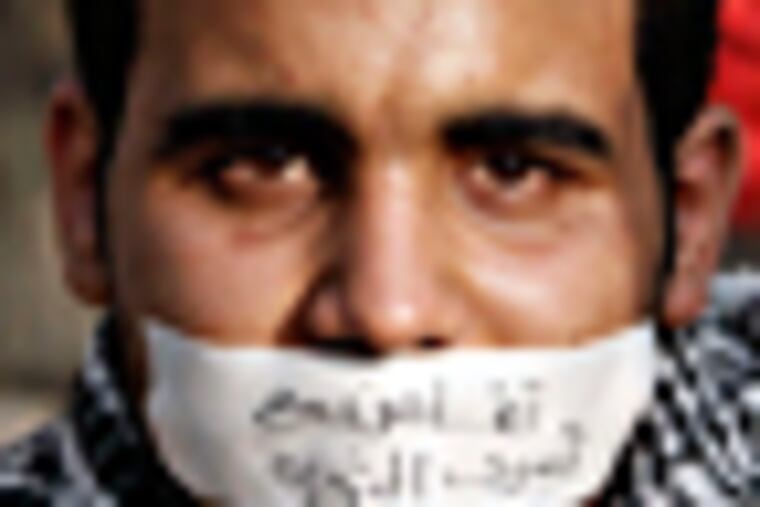Military chief sees 'great leader' from Egyptian elections
CAIRO - Egypt's military ruler said Wednesday he hopes that a "great leader" will emerge from the country's presidential election, and said it will be a free and fair vote that will reflect the will of the people.

CAIRO - Egypt's military ruler said Wednesday he hopes that a "great leader" will emerge from the country's presidential election, and said it will be a free and fair vote that will reflect the will of the people.
The remarks by Field Marshal Hussein Tantawi appeared intended to assuage fears among many Egyptians that the ruling military council may be pushing a preferred candidate of its own, and reassure them that the pervasive rigging that was routine under ousted president Hosni Mubarak will not take place.
It may also be meant to calm worries that the military will not go back on its pledges to hand over power to a winner who may well be the first president with a civilian background in the country's history.
His address comes a week before more than 50 million Egyptian voters are to choose the country's first president since the ouster of Hosni Mubarak in a popular uprising in February 2011.
Tantawi said the armed forces, police and judiciary will ensure fair and free elections, according to comments carried by the state media. "We hope the elections yield whoever is good for great Egypt. We want a great leader for a great nation."
This is the country's first real competitive presidential race, with 13 candidates vying for the country's top job.
For the first time, Islamist candidates are making a bid for the presidency. They are facing stiff competition from Mubarak-era officials, including his former foreign minister and his last prime minister, who like the ousted president is a former air force pilot.
It is unlikely that a winner will be determined in the first round of voting, and a runoff between two top candidates is expected on June 16-17. A president is expected to be declared by June 21.
The military has promised to transfer power by the end of June.
State TV's website quoted Tantawi as saying Egypt will present a "model to the world of elections that reflect the will of the people." Tantawi was speaking after attending a military training exercise.
Egypt's first post-Mubarak parliamentary elections that were spread out over three months starting in November witnessed some reports of violations but are generally thought to be the cleanest vote in decades.
Still, the stakes are arguably greater for the presidential vote, and many of the leaders of the uprising and several political forces, including the Islamists, fear the military council will try to steer the vote in favor of a candidate who will preserve their far-reaching economic and political interests built up over the past six decades.
The military has been the source of all Egypt's leaders since the 1952 military coup.
The Muslim Brotherhood, the country's most influential political Islamic group, which won close to half the seats in parliament, meanwhile warned Tuesday of "reinventing the old regime" and urged voters not to support Mubarak-era candidates.
"The believer doesn't get bitten twice by the same snake," the group said in a statement. "The nation has tasted agonies at the hands of the corrupt old regime."
"Stability and renaissance won't come from the hands of people linked to the former corrupt regime, therefore the nation ought to stand firm in the face of any attempts to reinvent this regime," the group said.
The turbulent post-Mubarak transition has been marred by frequent violence, deteriorating economic indicators, and a rise in crime.